These pages are inspired by the ancient Japanese wabi-sabi philosophy, accepting the natural imperfection of our world and seeing a certain beauty and uniqueness in that imperfection.
Get to know the principles of wabi-sabi and let yourself be inspired to a deeper perception of the beauty of the ordinary things of your life, events as well as of the people around you.
When we take how things – whether small or large (and in fact, it also applies to us and our lives) look like, our Western world is historically too obsessive by the effort for exaggerated perfection, symmetry and ideal proportions. It is a style refined with general rules and often even prejudices, mathematical calculations and taste of perfection and eternity.

Sure, thanks to this, we can admire beautiful works of art and the monumental architectural gems of our distant or recent past, but also the present.
But honestly, in everyday life, many of us do not want to and neither cannot identify with this concept of perfection, eternal youth, and the achievement of the universal ideal. It’s not just the nature of the world. Our lives are not perfect and accurate, according to the plan. Just as we are not perfect, symmetrical with ideal proportions. And certainly not forever young, whether we want it all that or not. Yet – our life can be beautiful and unique as we are.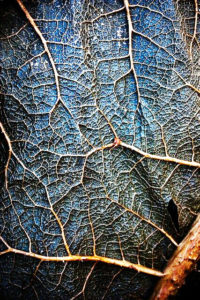 And if we can see in these “imperfections” just the certain beauty and uniqueness, sure our life can be also happier than the life of those, who keep trying to merge with the above-mentioned concept of perfection and eternity or those who are unsuccessfully expecting it all from their surroundings.
And if we can see in these “imperfections” just the certain beauty and uniqueness, sure our life can be also happier than the life of those, who keep trying to merge with the above-mentioned concept of perfection and eternity or those who are unsuccessfully expecting it all from their surroundings.
And that’s why so many people around the world get attracted by the concept of the Japanese aesthetic philosophy of wabi-sabi. Totally different from the aforementioned Western aesthetics, which still partly stems from Hellenic (Greek) aesthetics idealizing perfection, symmetry, eternity and majesty. On the contrary, Wabi-sabi emphasizes imperfection, asymmetry, nature, transience and humility.
Wabi-sabi refers to a deeper perception of inner beauty and life itself, of the beauty of imperfection, impermanence, melancholy. It is not based on youth and flourishing, but rather it believes that everything is always more beautiful when it reveals signs of the time and its individuality.
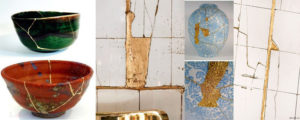
In the Western world, wabi-sabi has been very popular since the 1990s, especially in connection with the design, interior and garden architecture (more here). But when you become familiar with the principles of this philosophy, you will realize that wabi-sabi may be just as well a certain way of life.
Sure, against the original asceticism of the Japanese monks, we have made it a bit simpler in our current Western (American-European) civilization, and we have also certainly romanticized it. And probably that whiff of that certain romance and ubiquitous poetics is what probably not only me personally attracted in this way of looking at the world. I believe that, despite all the scars and wrinkles on our bodies and souls that we involuntarily “collect” during our lives, despite the parabola of our lives when a rise alternates a fall, a happiness alternates a sadness, despite all the personal falls and sad events, it is important to see eventually keep discovering the beauty of life again and again.
Visit any of the following posts or select any from the menu above
 What is wabi-sabi?
What is wabi-sabi? Wabi-sabi history
Wabi-sabi history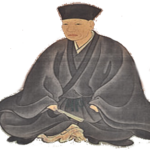 The legend of Sen no Rikyū
The legend of Sen no Rikyū What is the meaning of the words WABI and SABI?
What is the meaning of the words WABI and SABI?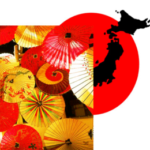 The success of wabi-sabi in the Western world
The success of wabi-sabi in the Western world Mottainai – the end of unnecessary waste
Mottainai – the end of unnecessary waste Mushin – art of the empty mind / mind without mind
Mushin – art of the empty mind / mind without mind Golden joinery of Kintsugi
Golden joinery of Kintsugi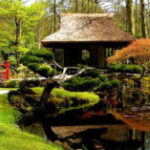 Japanese gardens
Japanese gardens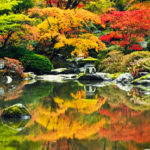 Get inspired by Japanese gardens
Get inspired by Japanese gardens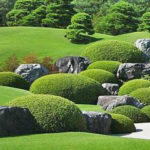 Types of Japanese Gardens
Types of Japanese Gardens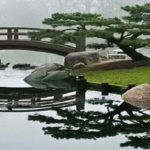 Elements of Japanese gardens
Elements of Japanese gardens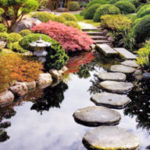 Aspects of Japanese gardens
Aspects of Japanese gardens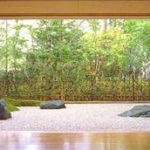 Zen gardens
Zen gardens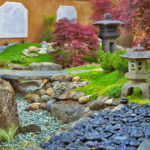 Your own Zen Garden in one weekend? Why not?
Your own Zen Garden in one weekend? Why not?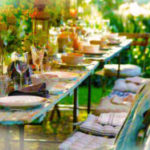 My Wabi-Sabi Garden
My Wabi-Sabi Garden Frosty beauty of winter nature
Frosty beauty of winter nature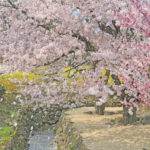 Hanami – Holiday of cherry blossoms
Hanami – Holiday of cherry blossoms We are ageing because we are living
We are ageing because we are living Wabi-Sabi Home
Wabi-Sabi Home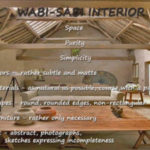 Wabi-Sabi Interior
Wabi-Sabi Interior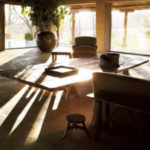 Axel Vervoordt – “Finding happiness through creating happiness”
Axel Vervoordt – “Finding happiness through creating happiness” Robert De Niro’s Wabi-Sabi Penthouse in New York
Robert De Niro’s Wabi-Sabi Penthouse in New York How I met with wabi-sabi in our old house
How I met with wabi-sabi in our old house Welcome to Wabi-Sabi Life.cz
Welcome to Wabi-Sabi Life.cz


